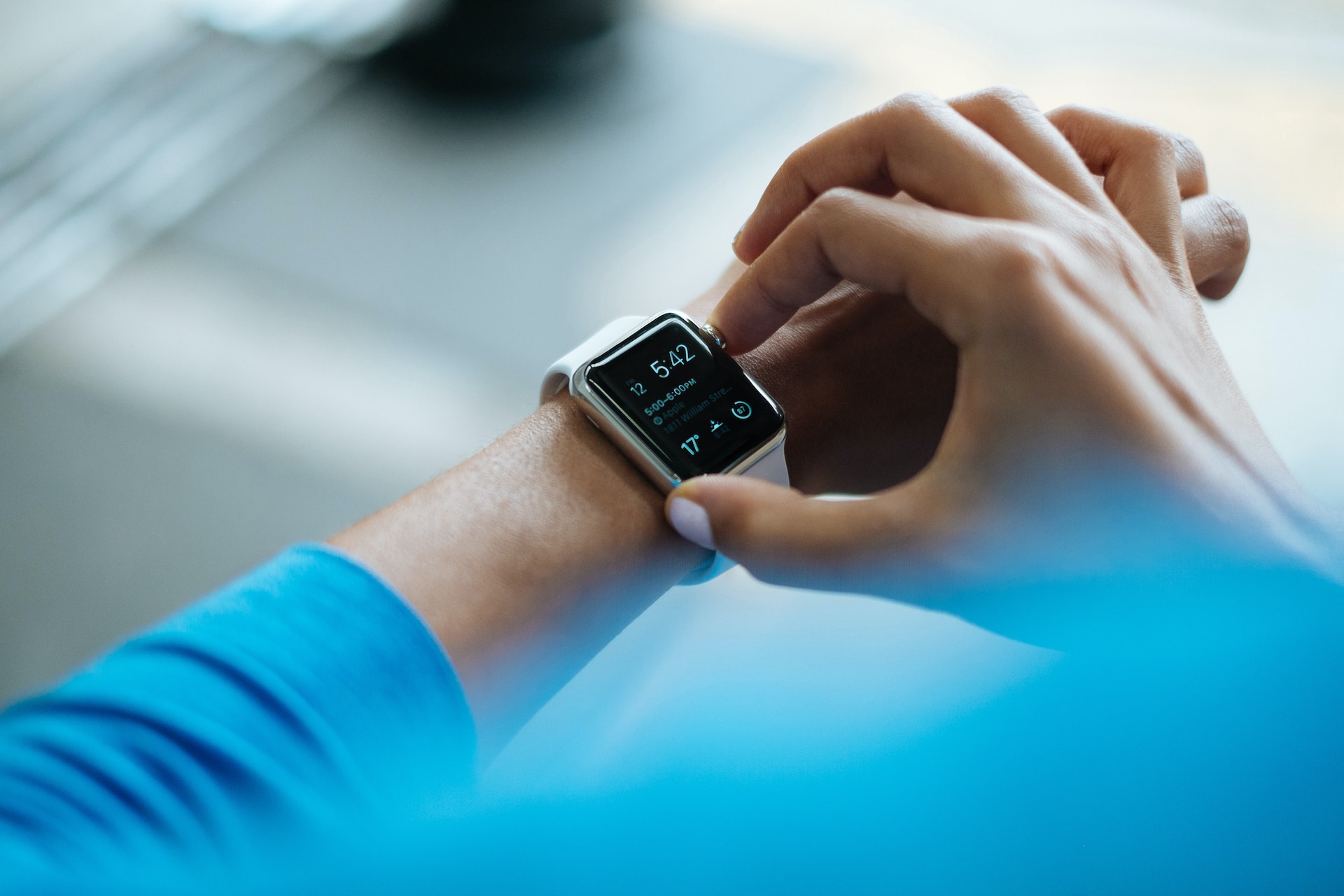Welcome to the world of health tech for your home! In today’s fast-paced and highly connected world, it’s no wonder that integrating technology into our everyday lives has extended to our personal well-being. With cutting-edge innovations and advancements, health tech has revolutionized the way we monitor and improve our health from the comfort of our own homes.
The possibilities seem endless, from smart devices that track your fitness goals and sleep patterns to telemedicine platforms that provide virtual consultations with healthcare professionals. Home health tech not only empowers individuals to take control of their health but also saves time and money by reducing doctor visits.
Imagine having a personal health coach at your fingertips, helping you stay motivated and accountable on your wellness journey. Or a smart home system that automatically adjusts your environment for optimal sleep and relaxation. The potential for health tech to enhance our lives is truly remarkable.
Benefits of Health Tech for the Home
When it comes to health tech for the home, the benefits are vast and varied. One of the most significant advantages is the convenience it offers. You no longer need to schedule appointments and wait in crowded waiting rooms. With telemedicine platforms, you can have virtual consultations with healthcare professionals from your home. This not only saves time but also reduces the risk of exposure to contagious illnesses.
Additionally, home health tech allows for continuous health monitoring, providing valuable insights and data that can help you make informed decisions about your well-being. Smart devices such as fitness trackers and smart scales can track your activity levels, heart rate, sleep quality, and even blood pressure. This data can be analyzed to identify patterns and trends, empowering you to make proactive changes to improve your health.
Furthermore, health tech for the home promotes self-care and empowers individuals to take control of their own well-being. By having access to real-time information about your health, you can make more informed choices about your lifestyle, diet, and exercise routines. This level of self-awareness can lead to better overall health outcomes and a greater sense of empowerment.

Popular Health Tech Devices for the Home
The market for health tech devices for the home is constantly evolving, with new innovations being introduced regularly. Here are some popular health tech devices that have gained traction in recent years:
- Fitness Trackers: Fitness trackers have become wildly popular, offering individuals the ability to monitor their daily physical activity, sleep patterns, and even heart rate. These wearable devices sync with your smartphone, allowing you to track your progress and set goals.
- Smart Scales: Smart scales not only measure your weight but also provide additional metrics such as body fat percentage, muscle mass, and water weight. This data can help you gain a deeper understanding of your body composition and track your progress over time.
- Smartwatches: Smartwatches have evolved beyond mere timekeeping. They now offer features such as heart rate monitoring, sleep tracking, and even ECG readings. These devices can also sync with your smartphone to provide notifications and reminders for physical activity.
- Telemedicine Platforms: Telemedicine platforms have gained significant popularity, especially in light of recent events. These platforms allow individuals to have virtual consultations with healthcare professionals, eliminating the need for in-person visits for non-emergency situations.
- Smart Home Systems: Smart home systems have expanded to include health-related features. For example, some systems can automatically adjust lighting and temperature to promote better sleep. Others can provide ambient noise or aromatherapy options for relaxation and stress reduction.
How to Choose the Right Health Tech Devices for Your Home
With the plethora of health tech devices available in the market, it can be overwhelming to choose the right ones for your home. Here are some factors to consider when making your selection:
- Your Health Goals: Start by identifying your specific health goals. Do you want to improve your fitness levels, track your sleep patterns, or manage a chronic condition? Understanding your goals will help you narrow the options and choose devices that align with your needs.
- Compatibility and Integration: Consider the compatibility of the health tech devices with your existing devices and ecosystem. Ensure that the devices can seamlessly integrate with your smartphone, smart home system, or other platforms you use for health tracking.
- User-Friendliness: Look for devices that are user-friendly and intuitive to use. Consider factors such as ease of setup, navigation, and data accessibility. The device should be able to provide you with clear and actionable information without overwhelming you with technical jargon.
- Reviews and Ratings: Read reviews and ratings from other users to get an idea of the device’s performance and reliability. Look for reviews from trusted sources and take note of any potential issues or limitations mentioned.
- Cost and Value: Consider the cost of the device and the value it provides. Compare prices across different brands and models, keeping in mind the features and capabilities offered. Remember, the most expensive device isn’t always the best, so weigh the cost against the value you expect to receive.
By considering these factors, you can make an informed decision and choose health tech devices that align with your goals and preferences.
Integrating Health Tech into Your Daily Routine
Once you have selected the right health tech devices for your home, the next step is to integrate them into your daily routine. Here are some tips to help you seamlessly incorporate health tech into your lifestyle:
- Set Realistic Goals: Use the data provided by your health tech devices to set realistic goals for yourself. Whether it’s increasing your daily step count, improving your sleep quality, or managing your stress levels, set achievable targets that motivate you to take action.
- Create a Routine: Establish a daily routine that incorporates your health tech devices. For example, if you have a fitness tracker, set aside specific times for exercise and make it a habit to track your activity levels regularly.
- Stay Accountable: Use the features of your health tech devices to stay accountable. Many devices offer reminders, notifications, and progress tracking features that can help you stay on track with your health goals.
- Analyze and Adjust: Regularly analyze the data provided by your health tech devices and make adjustments to your routine as necessary. Look for patterns or trends that can help you identify areas for improvement or celebrate milestones.
- Leverage Community: Join online communities or forums dedicated to health and wellness to connect with like-minded individuals. Share your experiences, seek advice, and find support from others who are also incorporating health tech into their lives.
By integrating health tech into your daily routine, you can make the most of these devices and enhance your overall well-being.
Privacy and Security Considerations for Health Tech Devices
While health tech devices offer numerous benefits, it’s crucial to consider privacy and security implications. Here are some considerations to keep in mind:
- Data Privacy: Understand how your personal health data is collected, stored, and shared by the device or platform. Look for devices that prioritize data encryption, secure storage, and transparent privacy policies.
- Third-Party Integrations: Be cautious when connecting your health tech devices to third-party platforms or apps. Ensure that these platforms have robust security measures in place to protect your data.
- User Permissions: Review the permissions requested by health tech apps or platforms before granting access to your personal information. Only provide the necessary permissions and avoid sharing sensitive data unnecessarily.
- Software Updates: Regularly update the software and firmware of your health tech devices to ensure you have the latest security patches and bug fixes. Manufacturers often release updates to address vulnerabilities and improve device security.
- Device Disposal: When disposing of health tech devices, ensure that you wipe any personal data stored on the device or factory reset it to remove your information.
By being mindful of these privacy and security considerations, you can protect your personal information while enjoying the benefits of health tech.
Health Tech Trends to Watch Out For
The field of health tech is constantly evolving, with new trends and innovations emerging regularly. Here are some health tech trends to keep an eye on in the coming years:
- Artificial Intelligence (AI) in Healthcare: AI is poised to revolutionize healthcare by enabling more accurate diagnoses, personalized treatments, and predictive analytics. Expect to see AI-powered health tech devices that can analyze data in real-time and provide actionable insights.
- Virtual Reality (VR) for Mental Health: VR technology is showing promise in the field of mental health. VR-based therapies and interventions can help individuals manage anxiety, phobias, and PTSD by creating immersive and controlled environments for exposure therapy.
- Personalized Nutrition: With advancements in genetic testing and data analytics, personalized nutrition is becoming a reality. Health tech devices that analyze your genetic makeup and provide personalized dietary recommendations are expected to gain popularity.
- Smart Wearables for Seniors: As the population ages, smart wearables designed specifically for seniors are gaining traction. These devices can monitor vital signs, detect falls, and provide emergency assistance, enhancing the safety and well-being of older adults.
- Health Monitoring Clothing: The integration of sensors and smart fabrics into clothing is an emerging trend in health tech. These garments can monitor vital signs, posture, and movement, providing a non-intrusive and continuous health monitoring solution.
As technology continues to advance, these trends have the potential to transform the way we manage our health and well-being.
DIY Health Tech Solutions for the Home
Not all health tech solutions need to come in the form of expensive devices. There are several DIY options that you can explore to enhance your home’s health tech capabilities. Here are some ideas:
- Smart Home Automation: Use smart home automation systems to create customized health routines. For example, you can program your lights to gradually dim in the evening to promote better sleep or set your thermostat to maintain an optimal temperature for relaxation.
- Home Fitness Setup: Create a dedicated space in your home for workouts. Invest in some basic fitness equipment such as dumbbells, resistance bands, or a yoga mat. Combine this setup with fitness apps or online workout programs for a DIY home fitness solution.
- Healthy Meal Planning: Utilize online resources and apps to plan and prepare healthy meals at home. There are several meal planning apps available that provide recipes, shopping lists, and nutritional information to help you make healthier choices.
- DIY Sleep Hygiene: Implement simple sleep hygiene practices to improve your sleep quality. Create a bedtime routine, limit screen time before bed, and optimize your bedroom environment for a restful sleep.
By exploring these DIY health tech solutions, you can enhance your home’s wellness capabilities without breaking the bank.
The Future of Health Tech in the Home
The future of health tech in the home holds immense potential. As technology continues to advance, we can expect to see even more sophisticated and integrated solutions for managing our health. Here are some possibilities:
- Advanced AI Assistants: AI assistants will become more personalized and capable of providing real-time health advice and guidance. These assistants will leverage data from various health tech devices to deliver tailored recommendations and interventions.
- Predictive Health Analytics: Health tech devices will evolve to provide predictive analytics, alerting individuals to potential health risks before they manifest. By analyzing patterns and trends in health data, these devices can help individuals take proactive measures to prevent disease or manage chronic conditions.
- Biofeedback and Neurofeedback Devices: Biofeedback and neurofeedback devices will become more accessible and affordable. These devices can provide real-time information about physiological and neurological processes, enabling individuals to learn how to regulate their own bodily functions.
- Smart Home Health Hubs: Smart home systems will become more integrated and capable of managing multiple health tech devices seamlessly. These hubs will act as centralized platforms for monitoring and controlling various aspects of health, from sleep environment optimization to medication management.
As these advancements become a reality, our homes will transform into comprehensive hubs of well-being, empowering us to take charge of our health like never before.
Conclusion
Health tech for the home has the power to revolutionize the way we manage and improve our well-being. From convenient telemedicine platforms to smart devices that track our health metrics, the possibilities are endless. By integrating health tech into our daily routines, we can gain valuable insights and take proactive steps towards better health. However, it’s important to consider privacy and security implications and make informed choices when selecting health tech devices. As technology continues to advance, we can look forward to even more exciting innovations that will transform our homes into hubs of well-being. So why wait? Embrace the world of health tech and unlock the potential for a healthier and happier life from the comfort of your own home.




